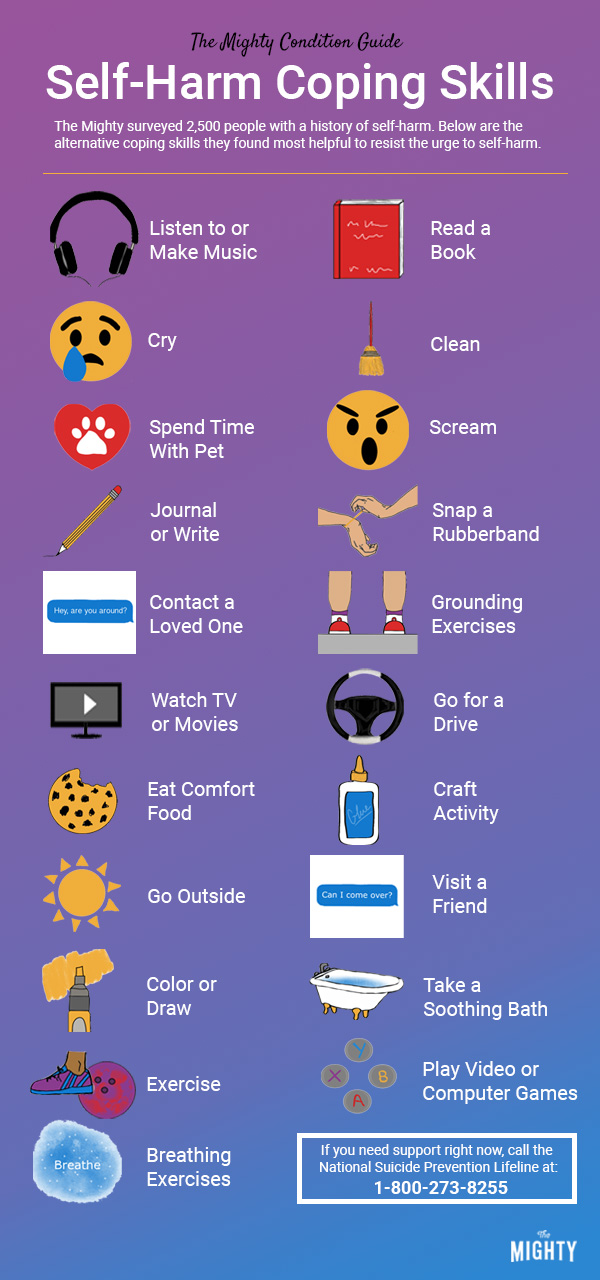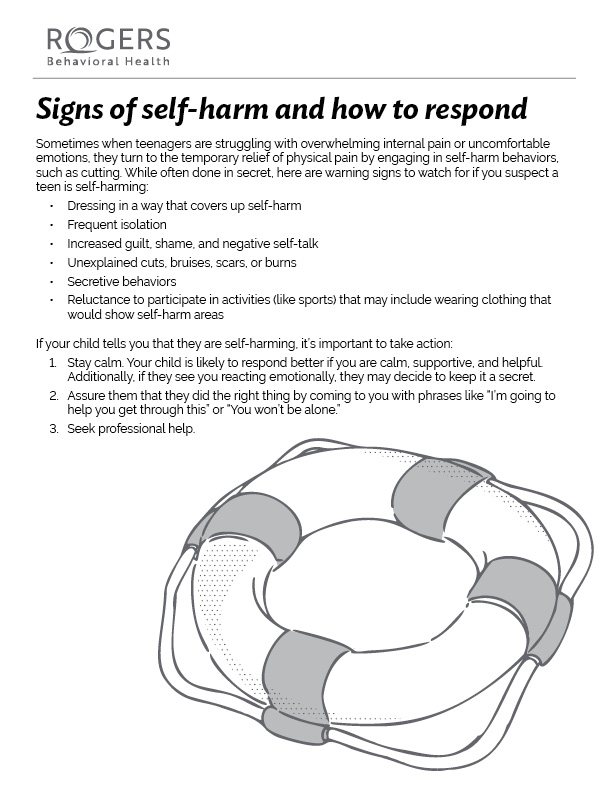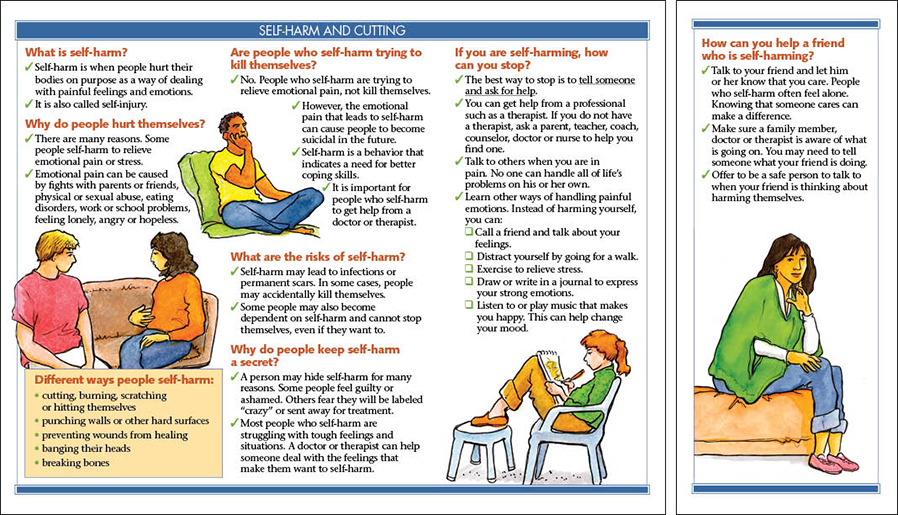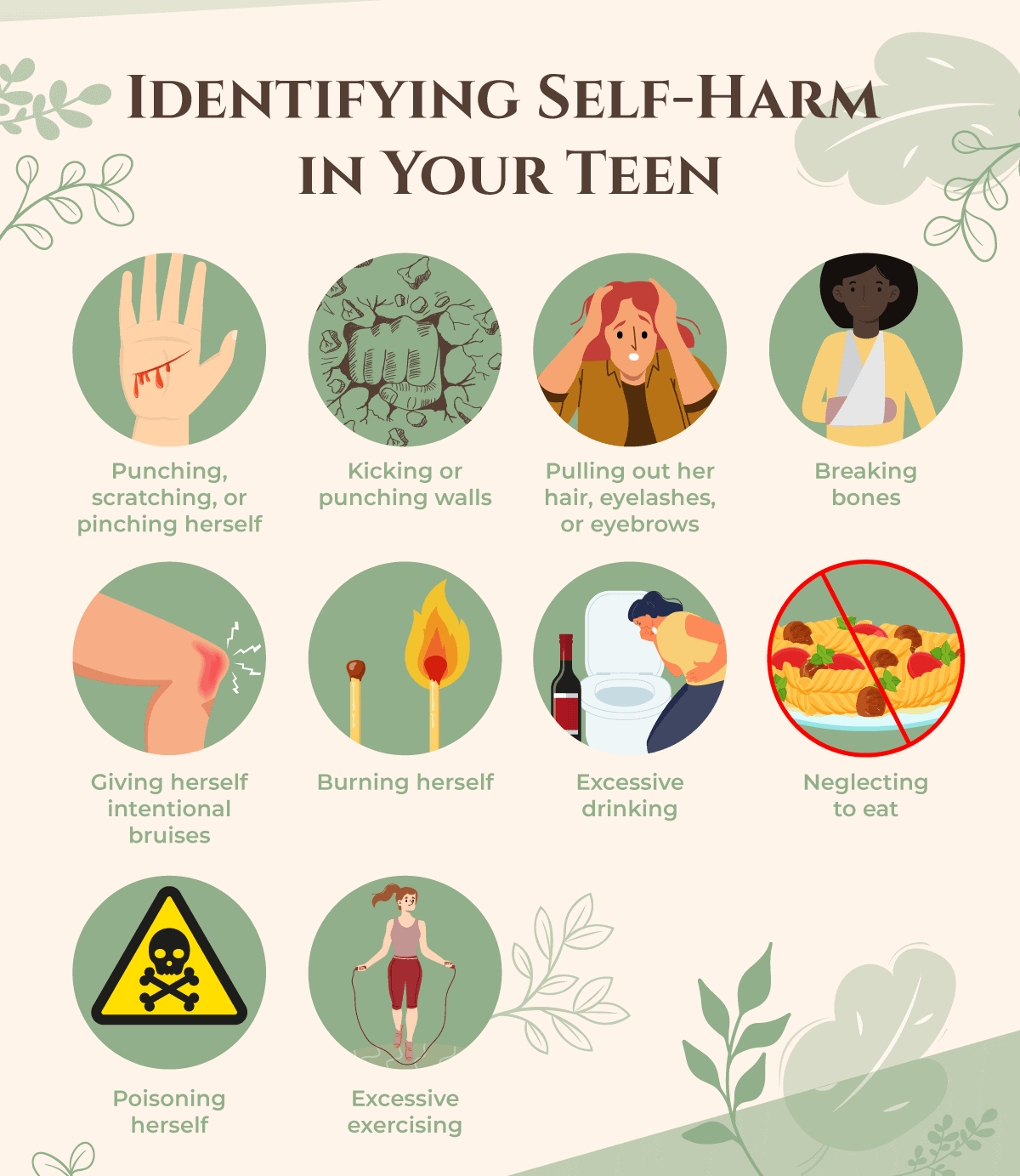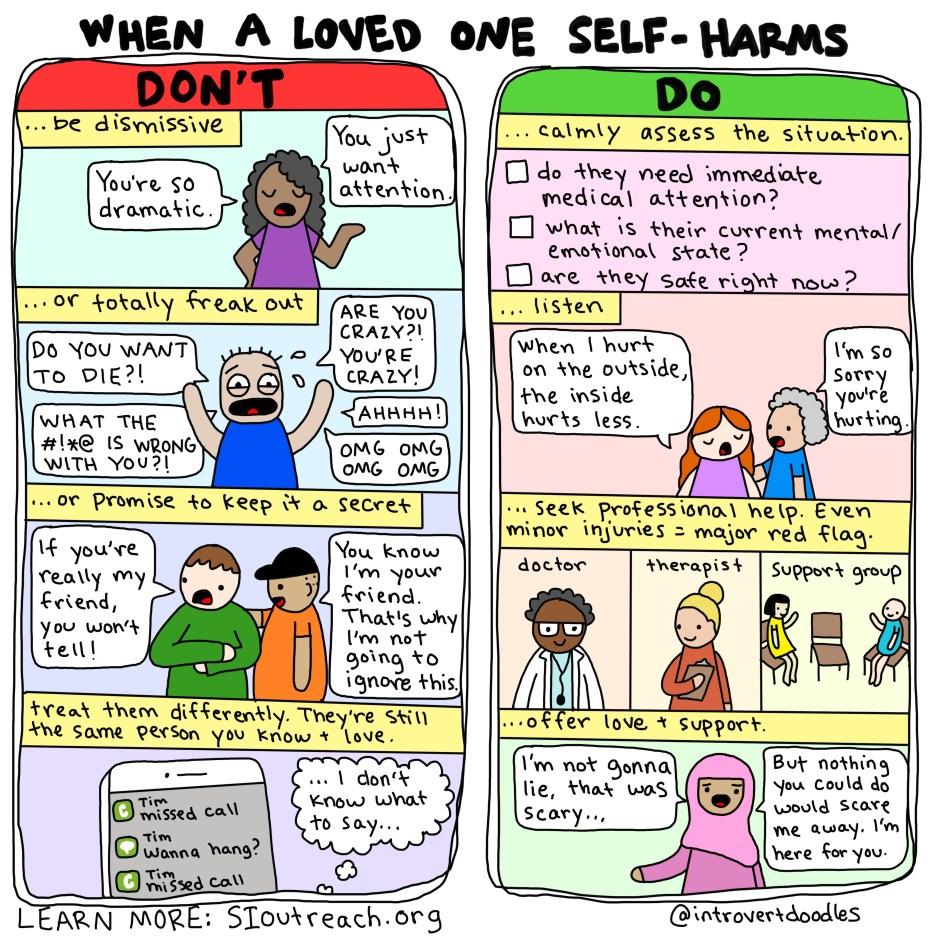Free Printables For Parents To Give Kids About Self Harm
Free Printables For Parents To Give Kids About Self Harm - On this page, we outline how you can support your child and where you can find professional help. Parents should be proactive and directly address the factors that increase the risk of suicide. You might be worried that a young person is harming themselves, even if they're not. The following recommendations can help to prevent suicidal thinking and behaviors (brock &. Unexplained cuts, burns or bruises. • feeling overwhelmed • feeling angry • feeling sad and alone • extreme anxiety. Like other parent guides in this series, this tool provides knowledge,. If you are worried, watch out for these signs: Remember, you can always text 'shout' to 85258 for support if you or. While you may feel shocked and overwhelmed by the discovery that your child is. While you may feel shocked and overwhelmed by the discovery that your child is. This handout gives guidance for ways to support your child at this time. If you're worried about your child or finding things as a parent hard, you may find some of the resources below helpful. Remember, you can always text 'shout' to 85258 for support if you or. The person needs to find a less harmful way of coping. On this page, we outline how you can support your child and where you can find professional help. Unexplained cuts, burns or bruises. Parents should be proactive and directly address the factors that increase the risk of suicide. You might be worried that a young person is harming themselves, even if they're not. Free to download and share in the classroom, home or community. • feeling overwhelmed • feeling angry • feeling sad and alone • extreme anxiety. The following recommendations can help to prevent suicidal thinking and behaviors (brock &. This guide will give you advice on how to approach this difficult and upsetting situation. Remember, you can always text 'shout' to 85258 for support if you or. Unexplained cuts, burns or bruises. On this page, we outline how you can support your child and where you can find professional help. While you may feel shocked and overwhelmed by the discovery that your child is. Download the guide for free. The following recommendations can help to prevent suicidal thinking and behaviors (brock &. Free to download and share in the classroom, home or. While you may feel shocked and overwhelmed by the discovery that your child is. On this page, we outline how you can support your child and where you can find professional help. If you are worried, watch out for these signs: Parents should be proactive and directly address the factors that increase the risk of suicide. If you're worried about. If you're worried about your child or finding things as a parent hard, you may find some of the resources below helpful. While you may feel shocked and overwhelmed by the discovery that your child is. The person needs to find a less harmful way of coping. The following recommendations can help to prevent suicidal thinking and behaviors (brock &.. The person needs to find a less harmful way of coping. This handout gives guidance for ways to support your child at this time. While you may feel shocked and overwhelmed by the discovery that your child is. You might be worried that a young person is harming themselves, even if they're not. Download the guide for free. This handout gives guidance for ways to support your child at this time. Like other parent guides in this series, this tool provides knowledge,. Remember, you can always text 'shout' to 85258 for support if you or. This guide will give you advice on how to approach this difficult and upsetting situation. On this page, we outline how you can. Unexplained cuts, burns or bruises. The following recommendations can help to prevent suicidal thinking and behaviors (brock &. Download the guide for free. Some of the most common triggers are: Resources developed by kids helpline counsellors on how to support students to navigate suicide and depression. This handout gives guidance for ways to support your child at this time. • feeling overwhelmed • feeling angry • feeling sad and alone • extreme anxiety. Remember, you can always text 'shout' to 85258 for support if you or. This guide will give you advice on how to approach this difficult and upsetting situation. Free to download and share. Parents should be proactive and directly address the factors that increase the risk of suicide. The purpose is not to condone or encourage you to hurt yourself, but to help you to stay. Some of the most common triggers are: Unexplained cuts, burns or bruises. On this page, we outline how you can support your child and where you can. Resources developed by kids helpline counsellors on how to support students to navigate suicide and depression. Like other parent guides in this series, this tool provides knowledge,. Unexplained cuts, burns or bruises. You might be worried that a young person is harming themselves, even if they're not. Download the guide for free. Like other parent guides in this series, this tool provides knowledge,. Some of the most common triggers are: On this page, we outline how you can support your child and where you can find professional help. Free to download and share in the classroom, home or community. While you may feel shocked and overwhelmed by the discovery that your child is. The following recommendations can help to prevent suicidal thinking and behaviors (brock &. If you're worried about your child or finding things as a parent hard, you may find some of the resources below helpful. Resources developed by kids helpline counsellors on how to support students to navigate suicide and depression. This handout gives guidance for ways to support your child at this time. The person needs to find a less harmful way of coping. If you are worried, watch out for these signs: You might be worried that a young person is harming themselves, even if they're not. The purpose is not to condone or encourage you to hurt yourself, but to help you to stay. Remember, you can always text 'shout' to 85258 for support if you or. You might be worried that a young person is harming themselves, even if they're not. • feeling overwhelmed • feeling angry • feeling sad and alone • extreme anxiety.Parents and Loved Ones How Do You Help a Child Who Is SelfHarming?
Signs of selfharm and how to respond Rogers Behavioral Health
SelfHarm and
Types of Self Harm Roots Renewal Ranch
The Cycle of SelfHarming and How to Stop It WTCSB
March is SelfHarm Awareness Month Connections Wellness Group
SelfInjury Painful Reminders Pamphlet Primo Prevention
Social Story SelfHarm Making Safe & Healthy Choices Teaching
Counseling Services / Self Harm
SelfHarm Relapse When Dangerous Habits Return
Parents Should Be Proactive And Directly Address The Factors That Increase The Risk Of Suicide.
Unexplained Cuts, Burns Or Bruises.
Download The Guide For Free.
On This Page, We Outline How You Can Support Your Child And Where You Can Find Professional Help.
Related Post:
